Ex-Fulham, Bradford, QPR and Norwich defender Zesh Rehman: Rejected, written off and racially stereotyped - now time to use painful experiences to help Portsmouth kids flourish
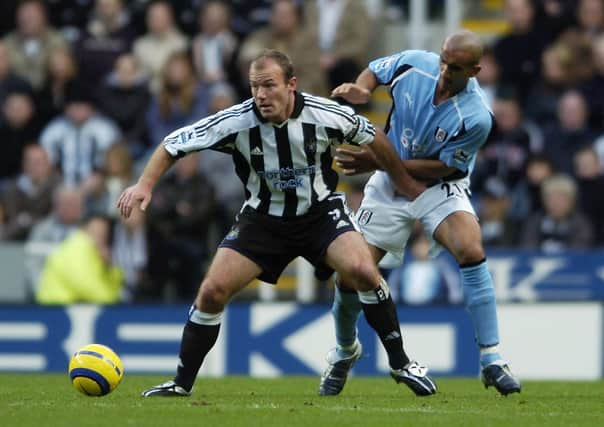

More than two decades have passed, yet coaching reports assessing his Fulham youth-team progress have been preserved, a nod to the past which moulded his future.
With characteristic honesty, Pompey Academy’s lead professional development phase coach describes himself as a ‘first-year scholar’ in the role he was appointed to in June.
Advertisement
Hide AdAdvertisement
Hide AdNonetheless, as a player, his remarkable pathway through the game serves as an inspiration to those seeking precious guidance.
Told he would never make a footballer and rejected by two Premier League clubs by the age of 12, Rehman subsequently totalled 20 seasons in the professional game, playing in four countries and skippering Pakistan internationally.
He also holds the distinction of becoming the first British Asian to feature in the Premier League, an entrance accomplished against Liverpool in April 2004.
Challenged to impact an Academy system requiring revitalisation, the infectious 38-year-old believes his unique personal experiences can be utilised to help Pompey’s starlets flourish.
Advertisement
Hide AdAdvertisement
Hide Ad‘I’ve experienced pretty much everything you can go through in the game in terms of success, disappointments, self-doubt, going through growth spurts, all kinds of emotions these kids are likely to face,’ Rehman told The News.
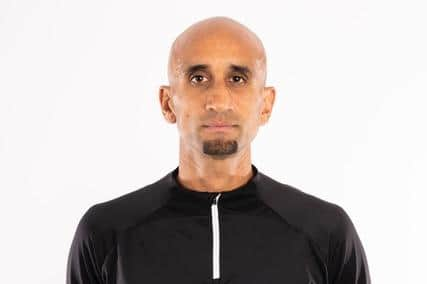

‘I was rejected twice by the age of 12, I've been the kid away from home, my parents were sometimes over-pushy, so I can relate to that.
‘For instance, last month I brought in my Academy reports from 20 years ago and sat down with injured lads such as Spencer Spurway and Destiny Ojo.
‘I wanted to show them that I also had a long-term injury, that I also was not good in particular areas – have a look at my reports. If you are not quite forging ahead in the group right now, it’s not the end of the world, you can always get on that journey.
Advertisement
Hide AdAdvertisement
Hide Ad‘At Fulham, I broke my foot and was out for six months, it was an overuse injury playing under-17s, under-19s, the reserves and training with the first-team. My body wasn’t quite ready for it.
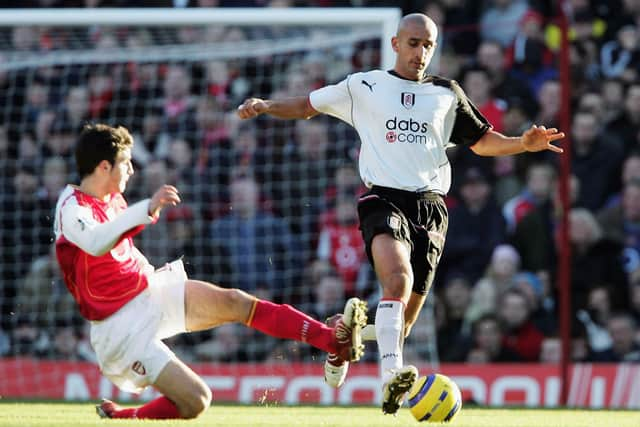

‘I was 17 at the time. I had another one at 18 and was out for another three months. These things can happen, it’s just about your mindset to come back.
‘Ultimately, it’s not about when I played, it’s irrelevant really, it’s about how they are doing, what are their targets, what does Danny (Cowley) want to see from them, what’s needed for the next part of their journey.
‘Every emotion they’re feeling, I can feel it, I can put myself in their shoes, it brings me back to that moment in time very quickly. It makes the conversion a lot easier.
Advertisement
Hide AdAdvertisement
Hide Ad‘Whether they are disappointed at not training with the first-team or whatever, I have pretty much been fortunate enough to live through that myself.
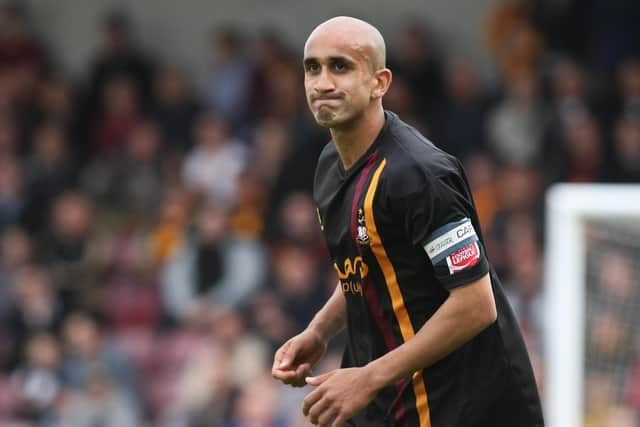

‘It’s empathetic conversations, a big part of my coaching ideal. The daily chats are where the magic happens.’
Growing up in Nechells Green, Birmingham, it was the family’s relocation to Sutton, South London, which would unlock Rehman’s football career.
Accepted into Fulham’s Academy at the age of 12, he progressed to make 30 appearances for the first-team, including a league debut at Liverpool in April 2004.
Advertisement
Hide AdAdvertisement
Hide AdThe central defender would go on to feature in all four divisions of the Premier League and Football League, representing Brighton (loan), Norwich (loan), QPR, Blackpool (loan), Bradford and Gillingham, as well as earn 25 caps with Pakistan.
He would spend the final decade of his playing days in Thailand, Hong Kong and Malaysia, before retiring at the age of 38 after 20 seasons in the game.
Remarkable longevity for a player who, as a 10-year-old, was told he would never make a footballer.
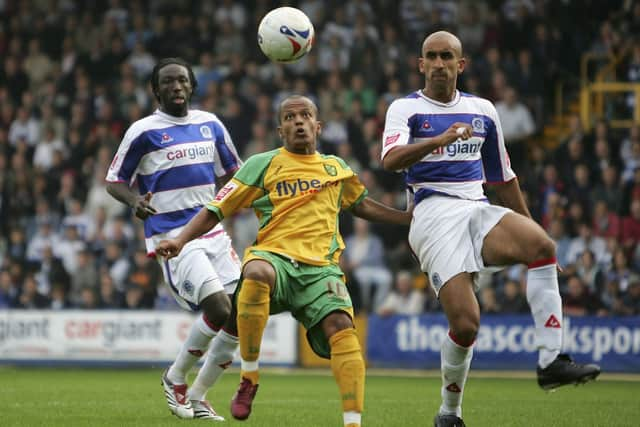

He added: ‘By the age of 12, I had been rejected by Aston Villa and Chelsea. You have a choice, accept it or fight it. Fight or flight.
Advertisement
Hide AdAdvertisement
Hide Ad‘You either roll over, crumble, or get back up and work again. I think it’s about proving yourself right more than proving the other person wrong, it’s just finding that motivational fuel.
‘When living in Birmingham, I had a trial at Villa, the club I support, but wasn’t signed. I was aged nine or 10 and was told quite bluntly “You are never going to make it”. It was go and play cricket, you’re scared of the weather, blah, blah, blah, all the negative stereotypes.
‘I later trained with Chelsea for a whole season. Every week they would hand out a bib signed by Gianfranco Zola, Gianluca Vialli and Ruud Gullit to the best trainer. I used to win that more or less every week, but didn’t get a game.
‘I was travelling from Sutton to Battersea two or three times a week, the best player in training every week, but not getting a game. At the end of the season, they said no. They told me I didn’t have enough strength in the legs, but I was 12, still growing.
Advertisement
Hide AdAdvertisement
Hide Ad‘There proved to be one more opportunity, though. Paul Clement was manager of my Sutton district side and a Fulham scout watched one match. I was a striker back then - I scored and we won the game.
‘This was my last chance and, aged 12-and-a-half, I grabbed it with both hands, I was determined not to let it go. I was there for the next 10 years.
‘The little set-back actually helped, sometimes you need that, you need a release to go and kick on again in your career. My motivation was to be that person the next generation of Asian players could look to, so everything I did was about that.
‘When I was young, there was nobody in the game for me to look up to, so I wanted to prove myself right and open doors, to show that others from similar backgrounds could also do this.
Advertisement
Hide AdAdvertisement
Hide Ad‘Let’s find a way, by trial and error, by making mistakes, by learning from mistakes, roll up your sleeves and try to be the one that opens doors.
‘It’s whatever motivates you. You can be motivated by proving people wrong, you can be motivated by money, you can be motivated by getting a bigger move – whatever works for you as an individual.’
It was a switch to Hong Kong-based Southern in June 2017 which would provide the first steps on a coaching pathway.
Having initially worked with their under-18s while carrying out playing duties, he was appointed player head coach three years later, leading them to fifth in the Hong Kong Premier League in his maiden season.
Advertisement
Hide AdAdvertisement
Hide AdHowever, it became apparent that management didn’t excite him, instead Rehman realised his passion lay with the development of young players.
Having hung up his boots in May, he moved to Fratton Park to replace Liam Daish, demonstrating his commitment by relocating his wife and two children from Kingston to settle in Southsea.
And with first-year scholarship pair Harvey Laidlaw and Brian Quarm’s Papa John’s Trophy introduction against Aston Villa Under-21s on Tuesday night, initial signs are promising.
‘The development side has always fascinated me. Five years before I stopped playing, I was preparing for it, this is the route I felt destined to go down,’ he said.
Advertisement
Hide AdAdvertisement
Hide Ad‘As a coach, you have to be passionate about the game. I’ve been in and around the training ground for 20 years in a row and, now I have stopped playing, this is year number 21. I’m still in that environment – I still have that love.
‘I don’t like the word retirement to be honest, I look at it more as changing jobs. I am 38, I’ve not really retired, I am coming to the peak of my life.
‘It’s the right time to change jobs and the most pleasing aspect of it was that it was done on my own terms – and I have zero regrets. The legs were struggling a bit chasing channel balls, I’d had enough.
‘For the final couple of years I was a ball-winning midfielder, while working as a player-coach. It was always going to be my last season, my passion for coaching outgrew the passion for actually playing in the sessions, which was a clear sign for me.
Advertisement
Hide AdAdvertisement
Hide Ad‘I was waking up more excited about training sessions, planning and reviewing. It was a gradual transition.
‘As the first-team’s player head coach, I was involved in recruitment, signing players, dealing with the media, making decisions. It was okay, but didn’t excite me. What really got me happy and excited was seeing individuals improve at the end of the game.
‘I would make some tactical changes and some games we’d win. Great. But I was more excited by the left-back crossing into dangerous areas, or the midfielder arriving late and scoring goals.
‘I had previously worked with the under-18s before taking the player head coach role. Now some of those youngsters are in the first-team, playing for the national team, so I’m like a proud dad, feeling that I had some small part in that – and, ultimately, that’s what I love to see.’
Advertisement
Hide AdAdvertisement
Hide AdAs the first British Asian to play in the Premier League and the first Pakistani international to play in England, Rehman is regarded as a figurehead for Asian players with footballing aspirations.
It's a responsibility he has embraced, dedicating his career striving to inspire other British Asians to follow his groundbreaking pathway into professional football.
Rehman has mentored rising Manchester United starlet Zidane Iqbal, who this season has featured twice for the under-21s in the Papa John’s Trophy and of Pakistan heritage, through his father.
Meanwhile, brother Riz is the PFA's player inclusion executive, overseeing the Asian Inclusion Mentoring Scheme (AIMS) project to encourage more participation from Asian footballers.
Advertisement
Hide AdAdvertisement
Hide AdRehman added: ‘A lot of people think that if you’re a former player you get a leg up and an easy way in, yet at Pompey it was far from it. The process was quite rigorous to be honest, it was really thorough, really detailed.
‘It was all about football. Not once during that process did anybody mention my background, where I am from, about Asian players in the game, none of that - and I loved that, absolutely brilliant.
‘This was music to my ears, it was all about me as a coach and how I can help these lads. For me, that was a selling point.
‘I did have other offers, financially better packages, but, for me, the gut feeling is a massive indicator. I'm always a big believer in the gut feeling, it just felt right.
Advertisement
Hide AdAdvertisement
Hide Ad‘Not that I am fed up talking about being the first Asian player in the Football League, I understand why it’s a talking point and see it as a privilege to be in that position. I have worked hard to be there.
‘I appreciate how certain communities see me as a role model, which I respect and understand, I will always try to make time for that.
‘But, ultimately, the game is about winning the respect of your team-mates, your coaches, people you are working with – so where you are from and what your background is is irrelevant.
‘If you are good at what you do and you are honest and work hard, then nothing else really matters, does it.
Advertisement
Hide AdAdvertisement
Hide Ad‘Football has no religion, football has no culture, no background. Yet football is a religion, it’s what people live for, especially in Portsmouth.
‘People might talk about my background, they might write about it, but when I come to training, as a player, as a coach, I am the same as you. We are all here because we must be okay at football, so let’s get to work.
‘It’s about whether you can win the respect of the dressing room, everything else is irrelevant, it doesn’t matter.’
A message from the Editor, Mark Waldron
Whether you're gazing out over the Mediterranean or spending this summer at home, take advantage of our 50% discount on an annual sports or regular digital subscription, from just £25!
Advertisement
Hide AdAdvertisement
Hide AdWe will be on the ball with all the latest Pompey news, match coverage, off-the-pitch features, and analysis from Fratton Park all year round.
Purchase your annual digital package and use promo code SUMSP50 at checkout.
